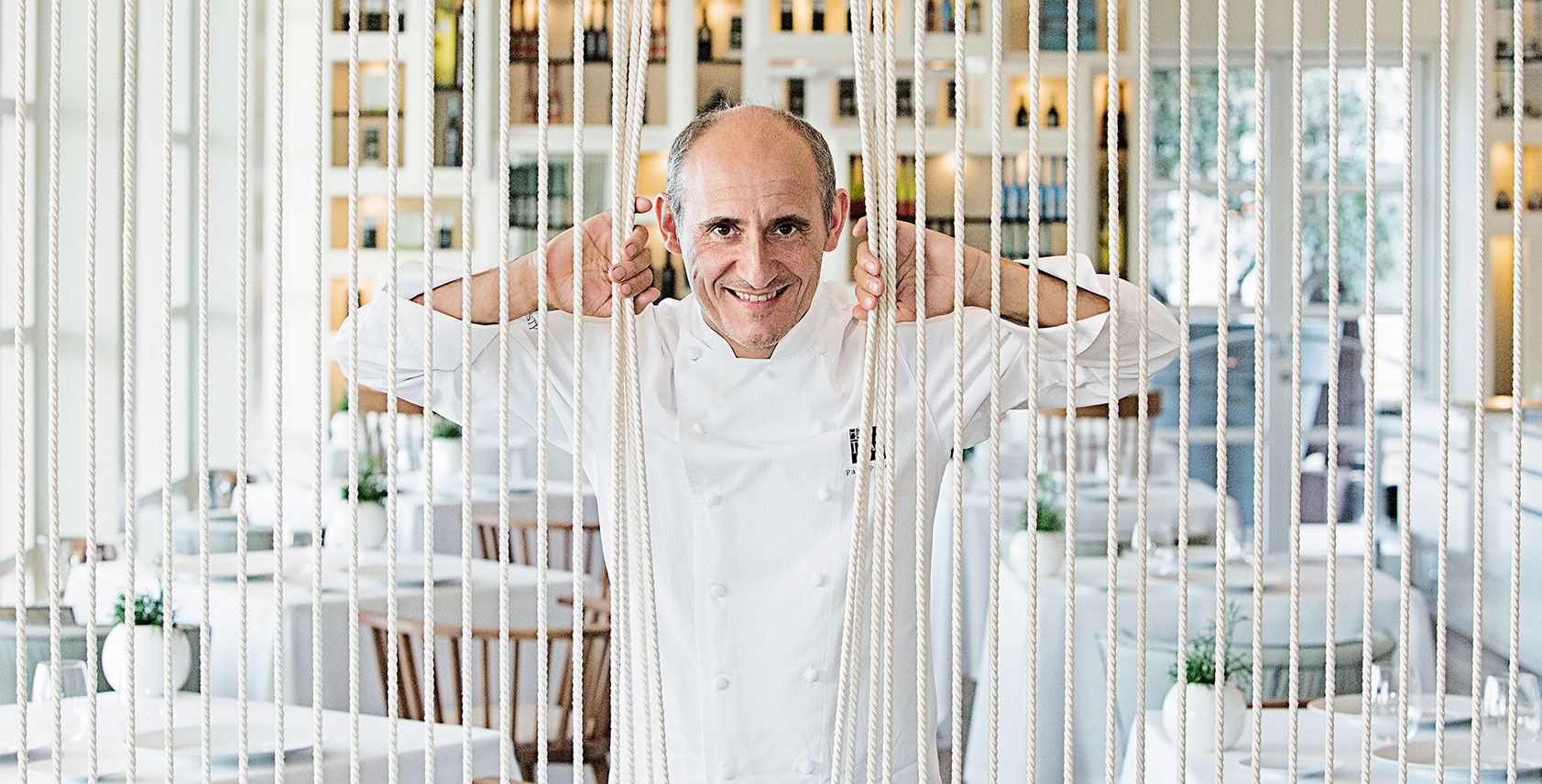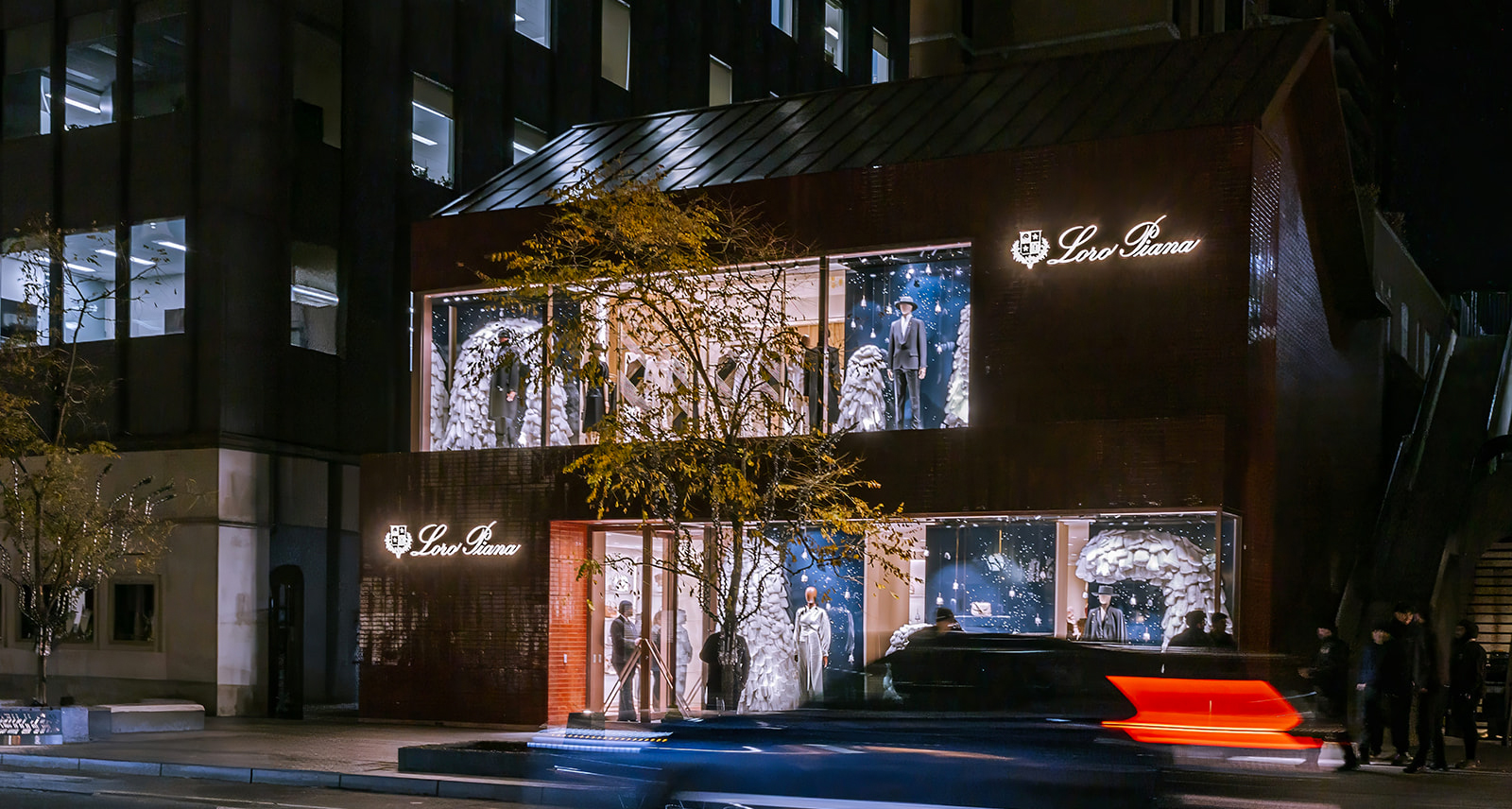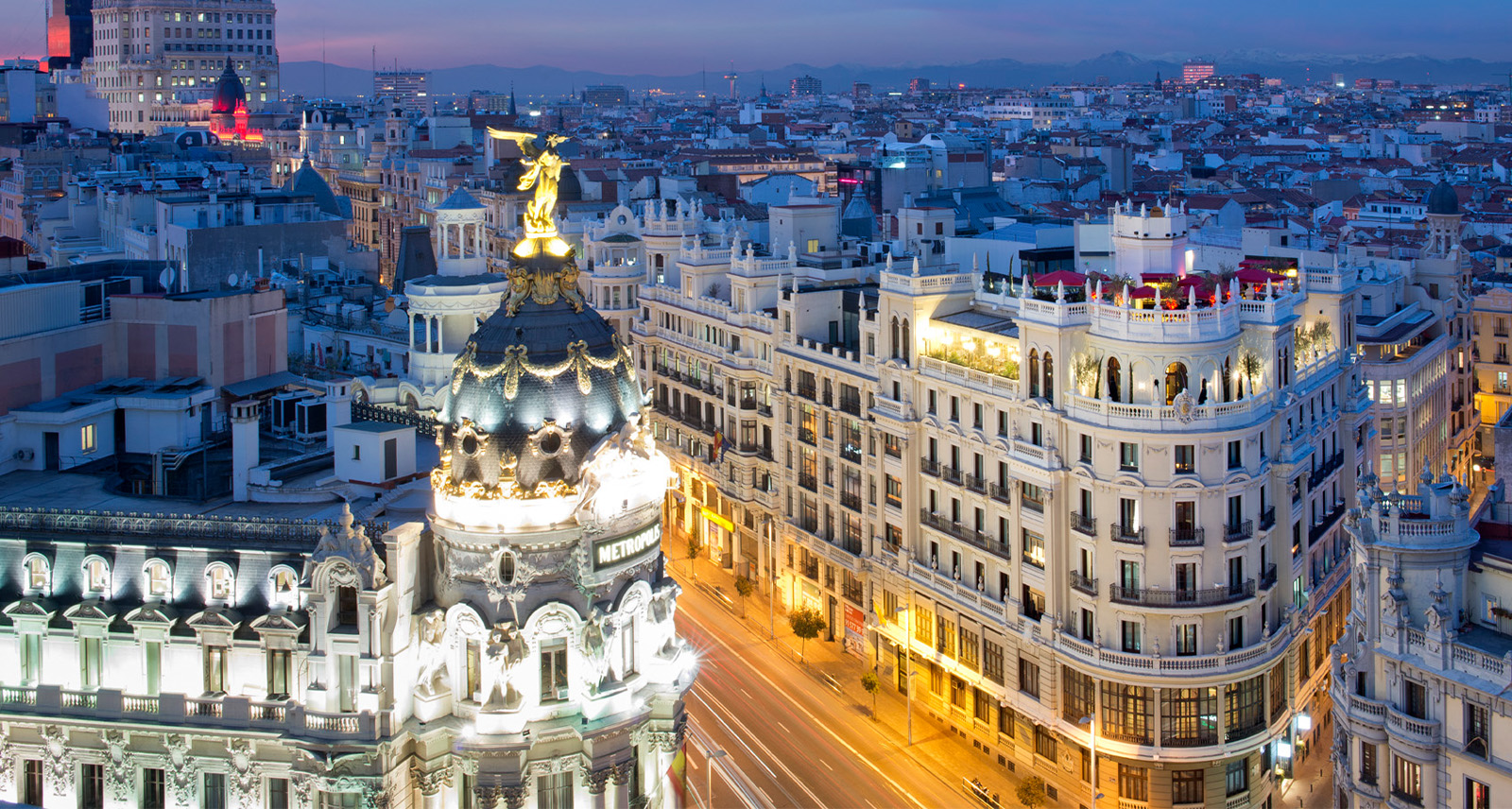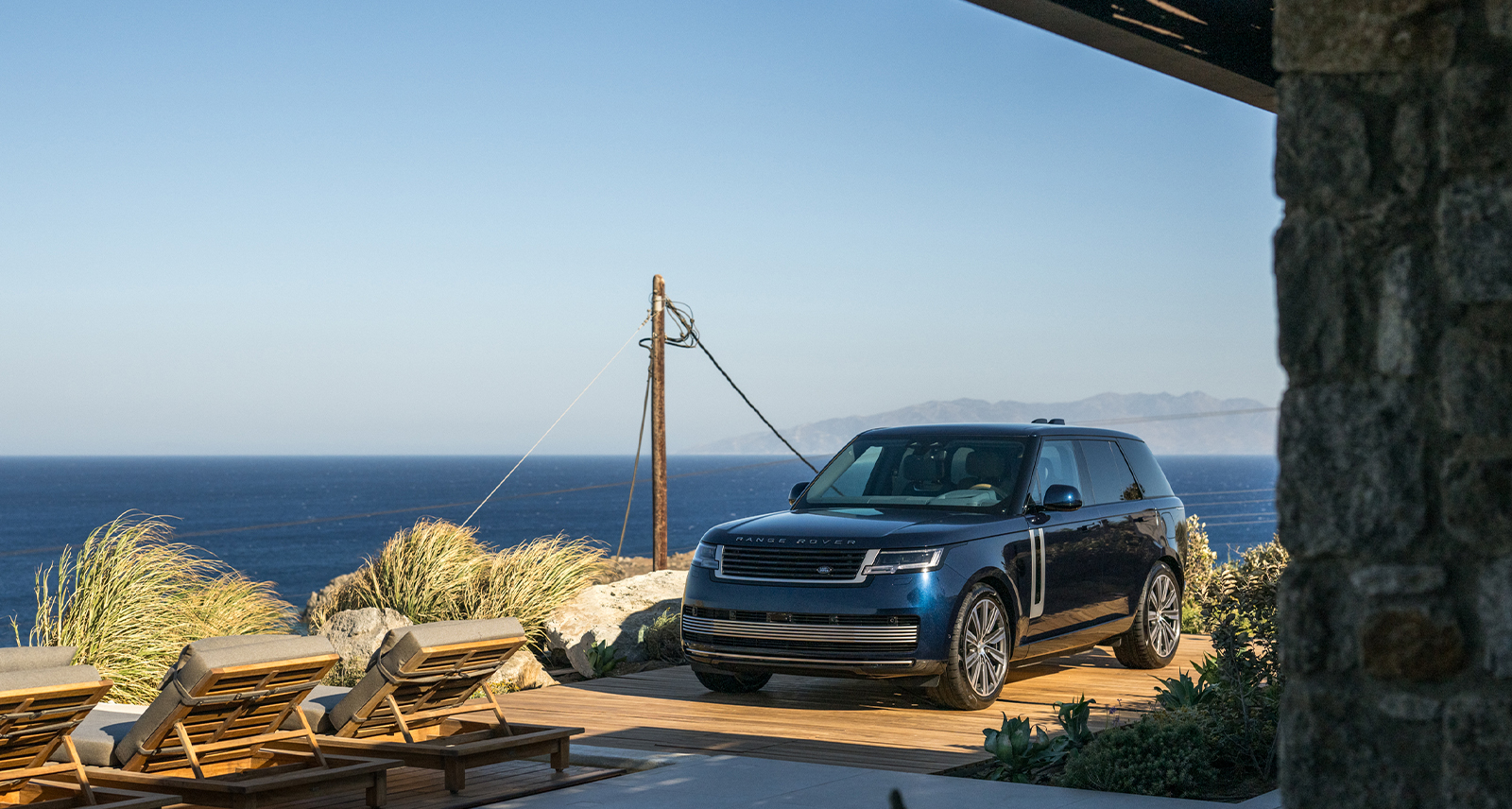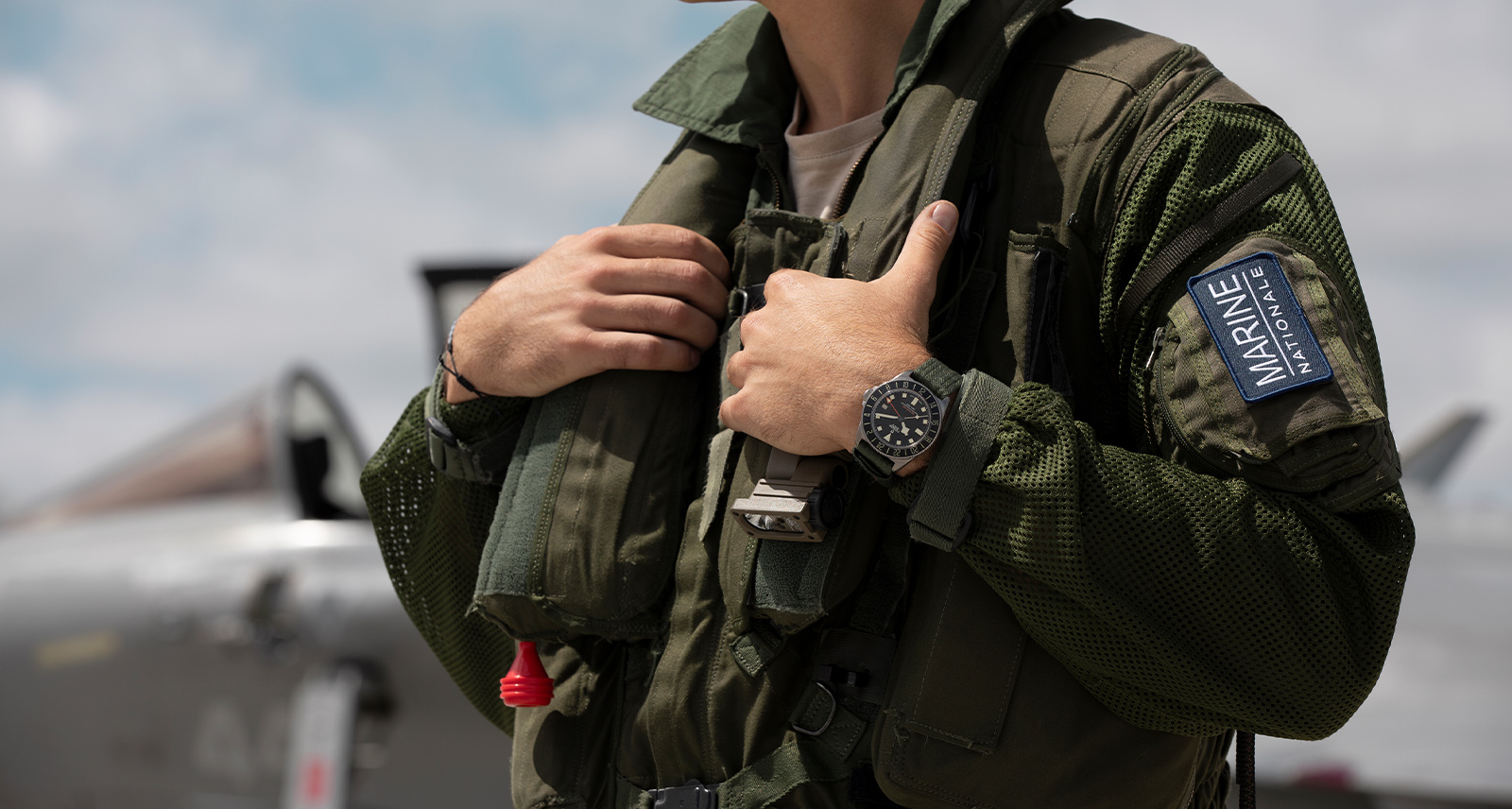Meet the Greatest Michelin-Starred Chef You’ve Never Heard Of
Paco Pérez is sitting in his car outside his restaurant and home in Llançà, a sleepy, whitewashed town wrapped around a yawning bay on the Costa Brava. He is talking about how he likes to cook, swinging his arms around like a frustrated orchestra conductor and raising his voice as he reaches the crescendo of each of his points.
“What the hell is unique food, anyway? I’m not sure it exists; everything comes from somewhere, is mixed with a particular ingredient or technique,” he pauses. “I don’t try to make unique food; I try to make interesting food, challenging food, food that tastes as good as it can.”
Outside the car, a string of chefs in light blue T-shirts rush between kitchens at the back of the restaurant, working violently: blood spurts, guts fly, bones crack, and whole vegetables become mountains of miniature cubes. In spite of the team’s constant movement, everything is controlled, as if routine had dug deep canals down which everything and everyone flows.
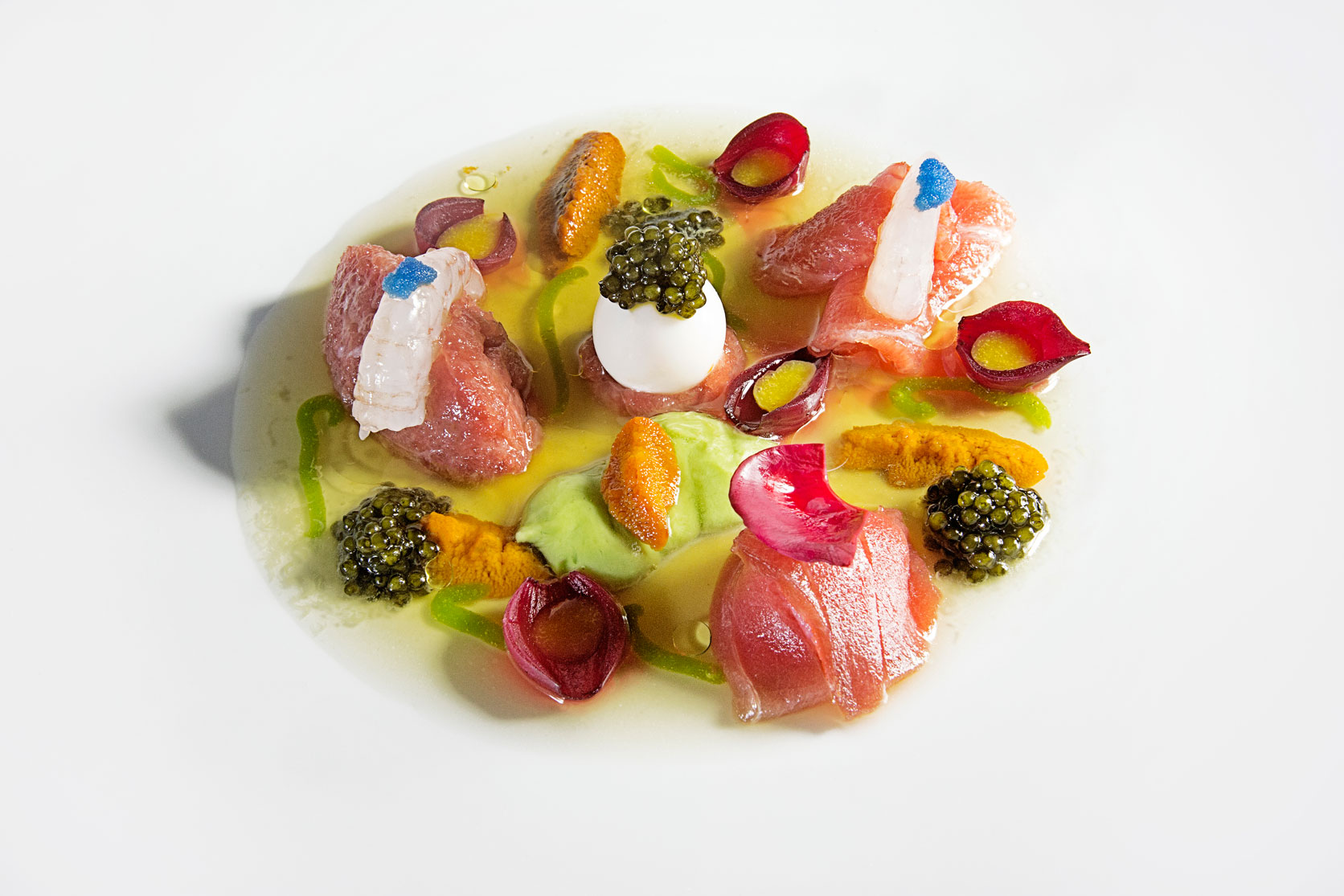
Pérez, 53, is short but lithe, with the bandy legs of an ex-footballer. He is bald and has skin as olive rich as the Mediterranean stereotype demands. Contrary to the image we all have, created by a food culture that celebrates chefs as artists and rock stars, he expresses himself with a genuine passion that somehow never wanders into pretension. He is direct, and he doesn’t look for meaning where none exists. Yes, food can be transcendental, but Pérez isn’t sure that high cuisine can be called art, or that the chef can rightly be called an artist. For him, food is primarily a biological need. It’s sustenance before anything else. And, in this sense, he believes that the world’s obsession with the gastronomic vanguard — the documentaries, the general adulation of the chef, and yes, the glowing magazine profiles — exaggerates everything. To his mind, it is still the creation of a client’s joy that is at the heart of cooking great food. Self-expression on the part of the chef is necessary, but ego isn’t.
“I’m a chef. My job is to give people a great experience and to show off my region’s products. But am I creating art? Am I recreating the flavour of a nation? God, I don’t know. I don’t think so.”
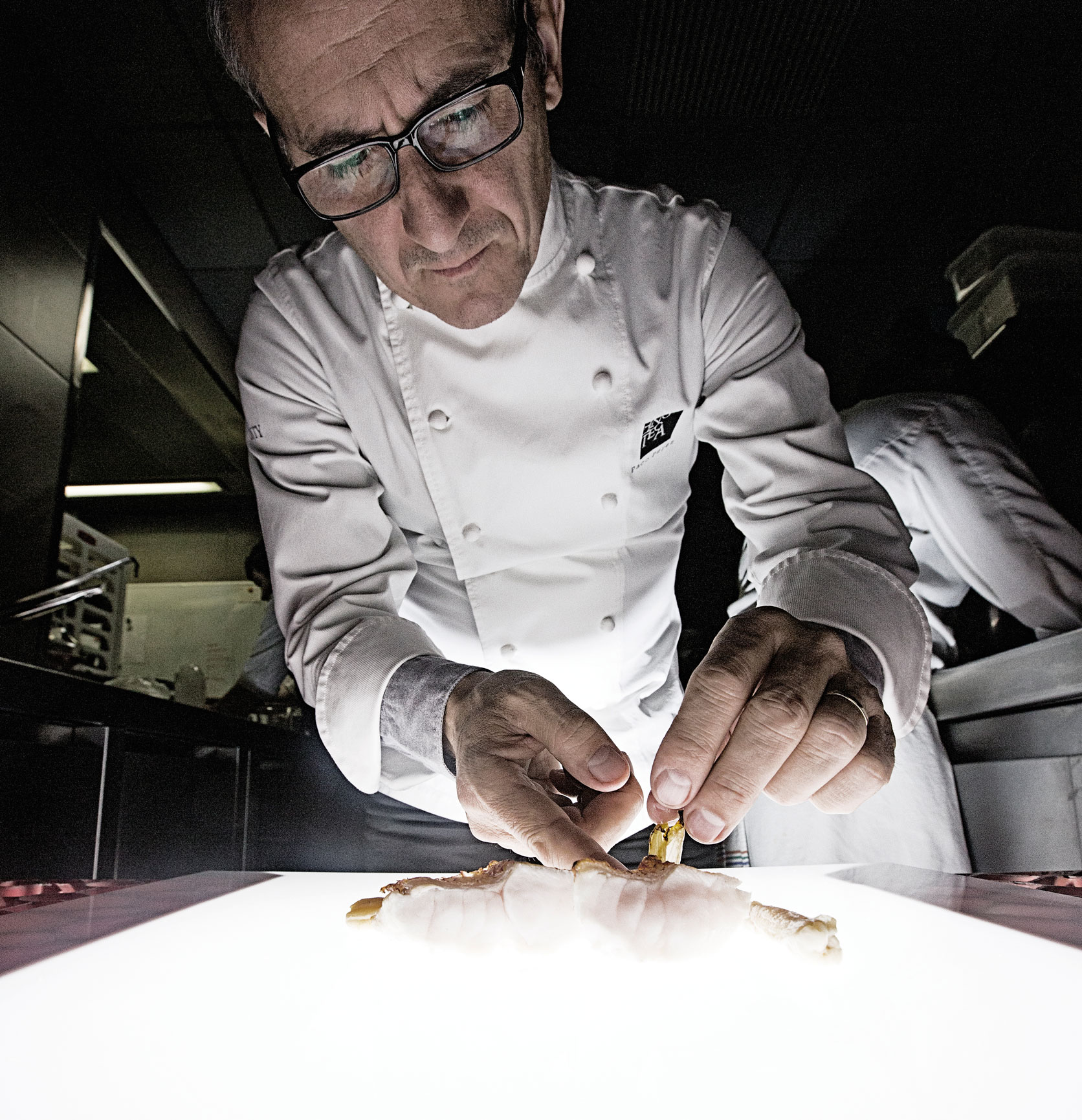
This ambivalence about his influence and importance almost seems quaint. But there’s a reason I’m in this sweltering Audi Estate speaking with him, while Luis Alonso, his senior chef and right-hand man, barks at suppliers on his mobile, checks in with employees, and reports back to his boss. The truth is, Paco Pérez is one of the greatest living chefs. He has seven restaurants in total, five in Barcelona, one in Llançà, and another in Berlin. Of these seven, three have Michelin stars — two at the Hotel Miramar; two at Enoteca, in Barcelona’s Hotel Arts; and one at Cinco in Berlin. It is a sum whose total makes Pérez the second-most Michelin-starred chef in Spain and among the best in the world. If any chef deserves renown, it’s him. But even in his home country of Spain — a place that loves its food — Pérez is nearly unknown. People may make pilgrimages to eat his food, but few know much about the prophet at whose table they are dining. It’s rare to find a man who eschews fame, even if he so richly deserves it. And so I’m travelling with Pérez to see why — even though the answer is so simple it sounds like spin — for him, it’s really all about the food.
•••
As we leave Llançà behind, the car winds its way through a landscape of bush-stubbled, sandy mountains, vertiginous valleys, and views of a choppy Mediterranean. Outside, the summer sun melts the asphalt, and the light reflects fiercely off the car’s bonnet. Alonso speaks rapidly on the phone, then jokes with Pérez in between calls. In the silences between their conversations, when there is no need to talk, the pair stare out at the landscape, the sun furrowing their brows and warming their faces.
“This is where I find my inspiration,” Pérez says from behind a sun-forced grimace. “A walk in the mountains in the summer or a walk on the beach in the dead of winter is when I do my best thinking. It’s where my best dishes come from.”
While he’s tied to this land, for Pérez the connection between nationality and gastronomy is fraught, as if it’s one more area where pretension and self-importance can creep in and dilute his work. So Pérez must be on constant vigil. But it makes sense from a logistical perspective, too. Pérez can’t be the representative of any one place in Spain, because he’s not from any one place.
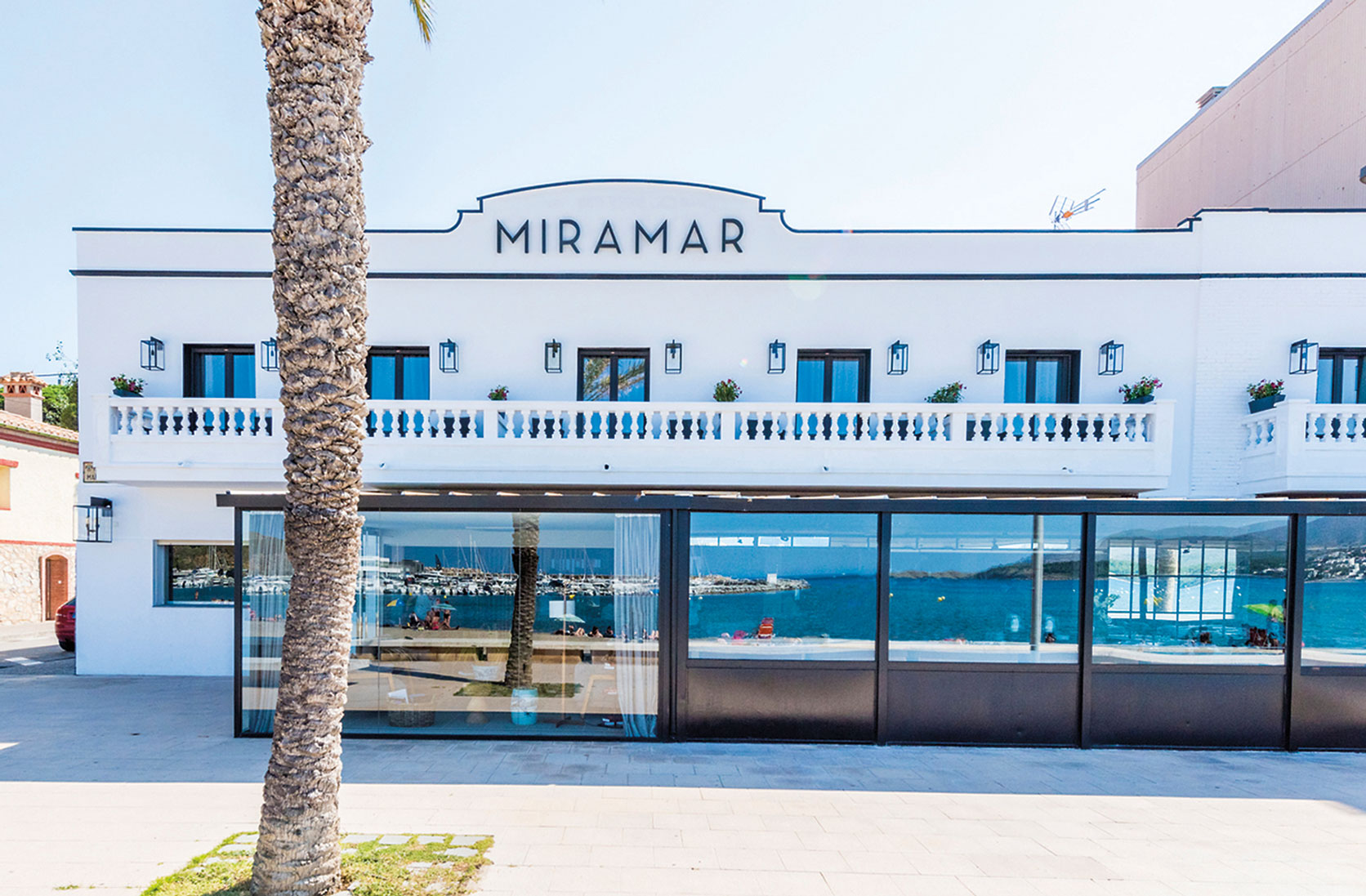
Pérez was born in Huelva, Andalusia, in the south of Spain. When he was less than a year old, his parents moved north to Catalonia in search of work, eventually settling in the village of Llançà, where the young Pérez would spend a large part of his youth. As a result, Pérez considers himself Catalan, not Spanish. Many people in Catalonia argue that the region is different from the rest of Spain, with its own history, culture, language (the people speak both Spanish and Catalan), and an economy that is one of the most powerful in Spain. But Pérez is adamant that his cuisine is not to be understood as some nationalist vehicle, or seasoned with political symbols.
“There is a lot of emphasis put on the divide between Spain and Catalonia,” he says as Alonso bellows down the phone to another supplier, “But neither I nor my cooking have ever been about that. I’m proud of my region, yes, but I respect every culture and every creed and try to use anything, from anywhere, that makes my cuisine more exciting.”
Pérez took his first job at his parents’ tapas bar at the age of 12. It was there where he ventured into experimental cookery, failing to cook a pizza using only the heat of the sun. His next stage was to learn proper technique, and he did this with his friend and first mentor, Luis Leon, at Can Manel and Can Lluis, in Llançà. But it was in the nearby town of Roses, where the Adrià brothers were revolutionizing the global gastronomic scene, that the young Pérez’s penchant for experimentation was indulged and ignited. In 1993 he entered the hallowed kitchens of El Bulli.
“That experience opened my mind to the true possibilities of food,” he recalls. “That it could be enhanced, distorted, and served in so many different ways, and mean something be- yond its own taste, changed my thinking completely.”
When the time was right for him to make it on his own, he chose to take over a hostel-cum-beach shack in Llançà, where he had been working on and off since 1984. The shack, named Miramar, had been the property of his wife’s family since 1939 and sold classic seafood stews and grills. But Pérez wanted to do something different, so in 1997, with his wife’s help, he transformed it into a sophisticated restaurant serving vanguardist cuisine.
The transition wasn’t easy. They were far from the tourist spots of Barcelona. New customers had no reason to venture out to try it, and regulars, accustomed to hearty Catalan classics, were wary of ordering spherified peas and sea cucumber ceviche. But Pérez’s perseverance eventually paid off: the restaurant earned its first Michelin star in 2006. When it won its second in 2010, people started coming from further afield, and Spanish critics began to earmark Miramar as a reference point of modern Spanish-Catalan cuisine. In just under 17 years, Hotel Miramar went from a nondescript beach hut to the Relais and Chateaux hotel-restaurant it is today, and Pérez became one of the best chefs in Spain. In 2012, he was nominated for a national culinary award. He went to Madrid for the ceremony, and the press there didn’t even know who he was, let alone that he had two stars at Miramar and four in total.
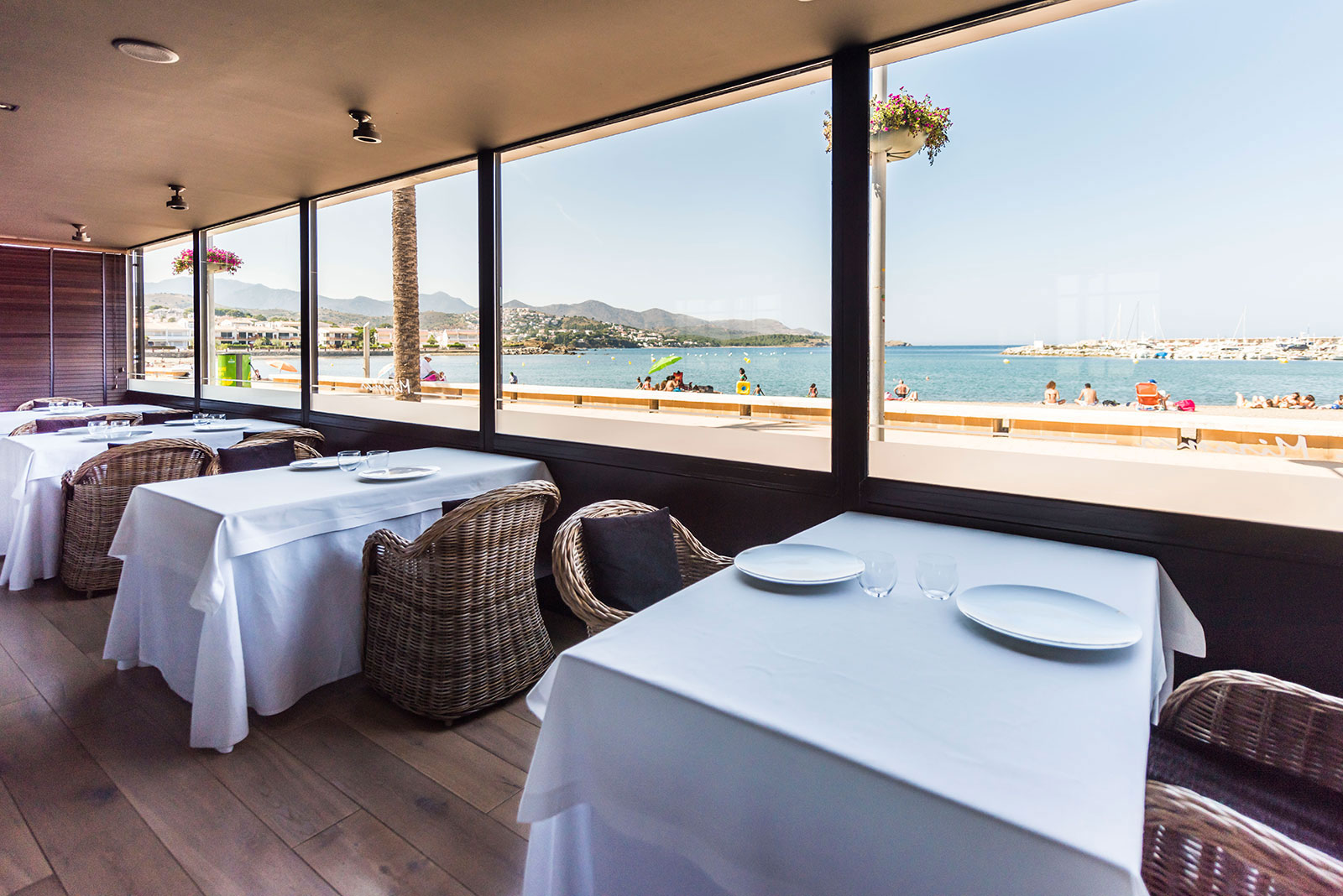
…
We’ve come to a nondescript warehouse in Palamos. Almost as soon as Pérez enters, he is surrounded by cameras in a small showroom kitchen. Five people scurry around him, adjusting cutlery, fixing microphones, and bumping into one another. The room is hot from the lights and the residual heat of the day. It smells of burnt fat and newness and has that distinct emotional sterility of a studio. They are filming a short video for the company whose ovens Pérez uses. These aren’t the trappings of fame, they’re the trappings of business.
But Pérez is comfortable enough and switches easily between Castilian Spanish and Catalan, depending on who wants to speak what. He makes jokes, gives hugs, and moves with the ease of a person accustomed to many bodies sharing a confined space. He is unfussy and calm, relenting to the waves of directions that come his way. When the filming starts, however, he slips into the controlled fluency of a television host. He’s teaching the camera how to make a pork jowl salad with Japanese seaweed. It’s not exactly a Catalan dish.
He smiles, and when the director calls “Cut!” he slumps back into the comfort of his real personality.
Pérez uses styles from all over the world to achieve his dishes. He finds these in his travels or through the extensive research he puts in with each of his head chefs in every one of his restaurants. Indeed, in Miramar, Cinco, or Enoteca, the diner is as likely to see yakitori-style chicken, wagyu beef in an orange blossom sauce, or strawberry ceviche as he is to see a traditional Catalan fish stew. But central to Pérez’s philosophy is creativity, and if a different technique or ingredient is capable of giving more flavour to a dish than a local one, he will always use it.
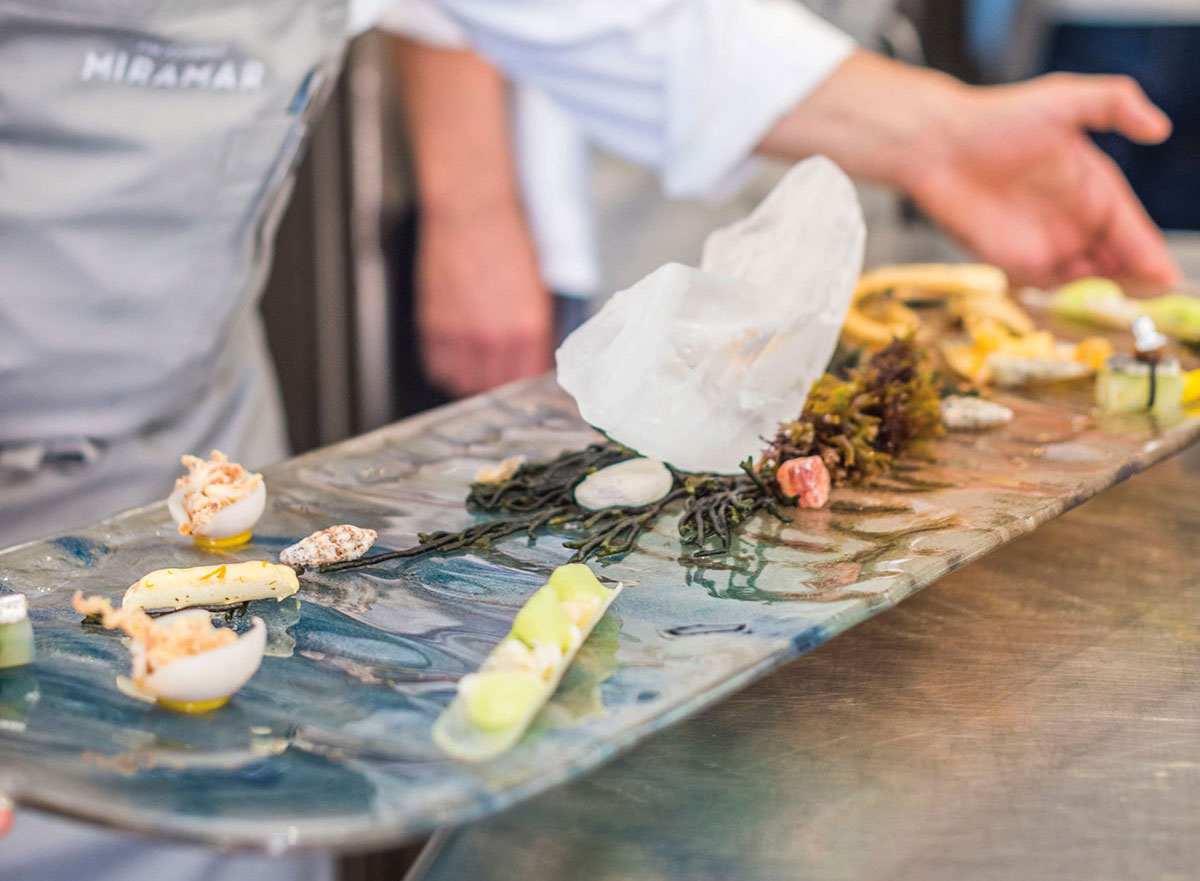
Pérez says his goodbye to the film crew and heads toward his car. Maybe it’s the talk of fusion cooking or the self-consciousness that comes from being on camera as a chef, but as the warehouse recedes from view, Pérez is talking about what being a chef means. “Not that long ago, the chef was nobody. It was the client who chose how he or she ate. Now these same diners pay a lot of money to have the chef tell them how they should eat.”
High cuisine is an experience, and the chef is the curator. It’s educational, a way of transporting diners both to other countries and other times in their lives. Pérez recalls one particular diner at Miramar, a Galician woman who worked in the city of London. The woman had been away from her home region for a long time and found in Llançà something comparable to her home village. She chose the tasting menu, which had a strong seafood theme. After finishing it, the woman burst into tears. She said the food had transported her back to her childhood, when she used to pick cockles from the beach near her house.
“I suppose those are the types of reactions you are after as a chef,” muses Pérez, “but when it happened, I was still very humbled.”
